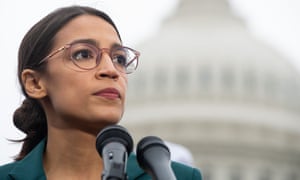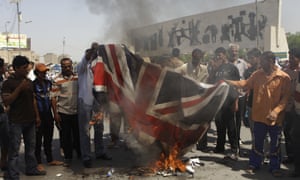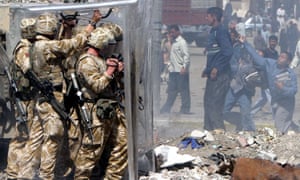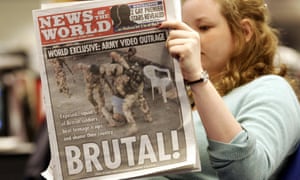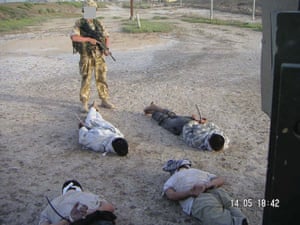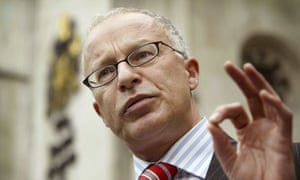From the hunger strike to the edible projectile, history offers abundant examples of food being used for political ends. Even so, the crowd of vegans who gathered in central London earlier this year are unlikely to forget the moment when Gatis Lagzdins skinned and ate a raw squirrel.
Along with his co-conspirator Deonisy Khlebnikov, Lagzdins performed his stunt at the weekly Soho Vegan Market on Rupert Street. He would subsequently demonstrate at VegFest in Brighton (although this time his snack of choice was a raw pig’s head) as part of a self-proclaimed “carnivore tour” intended to highlight the evils of a plant-based diet. At the London event, he wore a black vest emblazoned with the slogan: “Veganism = Malnutrition.”
The war on vegans started small. There were flashpoints, some outrageous enough to receive press coverage. There was the episode in which William Sitwell, then editor of Waitrose magazine, resigned after a freelance writer leaked an email exchange in which he joked about “killing vegans one by one”. (Sitwell has since apologised.) There was the PR nightmare faced by Natwest bank when a customer calling to apply for a loan was told by an employee that “all vegans should be punched in the face”. When animal rights protesters stormed into a Brighton Pizza Express in September this year, one diner did exactly that.
A charge commonly laid against vegans is that they relish their status as victims, but research suggests they have earned it. In 2015, a study conducted by Cara C MacInnis and Gordon Hodson for the journal Group Processes & Intergroup Relations observed that vegetarians and vegans in western society – and vegans in particular – experience discrimination and bias on a par with ethnic and religious minorities.
Illustration: Lee Martin/Guardian Design
Once a niche interest group parodied in TV shows such as The Simpsons (in which a character describes himself as a “level five vegan” who refuses to eat anything that casts a shadow), in the past two years, vegans have been thrust into the limelight. A philosophy rooted in non-aggression has found itself at the heart of some of the most virulent arguments on social media. In November 2018, Good Morning Britain hosted a debate titled “Do people hate vegans?”; the political website Vox tackled the question in even more direct fashion a week later, asking: “Why do people hate vegans so much?”
These recent displays of enmity towards vegans represent a puzzling escalation in hostilities, just as a consensus is starting to form that eating less meat would almost certainly be better for everyone – and the Earth. Of course, eating less meat does not mean eating no meat whatsoever, and the extreme prohibitions associated with going vegan (no animal products, no eggs, no leather, no wool) suggest it could have been just another Atkins diet or clean-eating fad – a flash in the pan that blows up and then dissipates, leaving behind nothing more than a dose of mild regret. Instead, just when the growth might have been expected to plateau, it kept on growing. A 2016 Ipsos Mori survey suggested the total number of vegans in the UK had increased more than 360% in the preceding decade, to more than 500,000.
Big business has been quick to cash in. The Los Angeles-based company Beyond Meat, producer of plant-based burgers whose taste and texture are as much like minced beef as possible, recently went public and soon afterwards hit a valuation of $3.4bn; huge conglomerates such as Nestlé and Kellogg’s are moving into the fake-meat market; supermarkets and restaurant chains have introduced vegan ranges. Yet perhaps the definitive proof of veganism’s mainstreaming – and the backlash against it – came in January this year, when the beloved high-street bakery chain Greggs announced it was launching a Quorn-based vegan sausage roll. It was pilloried by Piers Morgan, who tweeted: “Nobody was waiting for a vegan bloody sausage, you PC-ravaged clowns.” It turns out Morgan was mistaken: the vegan sausage roll was such a hit that the company’s share value leapt by 13%.
Of course, what we grow, harvest, fatten and kill is political. A Tesco advert showcasing vegan produce met protests from the National Farmers Union who claimed it “demonised” meat, while Shropshire deputy council leader Steve Charmley unleashed a tweet-storm when confronted with pro-vegan advertising in a county he claimed was “built on agriculture”. This moment, and this conflict, were a long time coming. The rise of veganism is a question less of personal taste than of generational upheaval; less about meat and fish and dairy than the systems that put them on our tables in such excessive quantities. Ultimately, the vegan wars are not really about veganism at all, but about how individual freedom is coming into conflict with a personal and environmental health crisis.
In many cultures, the practice of abstaining entirely from animal produce has an established history: with their belief systems rooted in nonviolence, many Rastafarians, followers of Jainism and certain sects of Buddhism have been swearing off meat, fish, eggs and dairy for centuries. In large swathes of the west, though, public awareness of what veganism actually entails has been sketchy. There wasn’t even a commonly accepted English-language name until 1944, when a British woodworker called Donald Watson called a meeting with a handful of other non-dairy vegetarians (including his wife, Dorothy) to discuss a less cumbersome label for their lifestyle. They considered alternatives such as dairyban, vitan and benevore before settling on the term we use today, a simple contraction of vegetarian on the grounds that “veganism starts with vegetarianism and carries it through to its logical conclusions”.
But those logical conclusions did not stop at abstaining from certain foods. The original vegans were not pursuing a diet so much as a belief system, a wholesale ideology – one that rejected not just animal protein but also the way animals had become part of an industrial supply chain. In the 1970s, Carol J Adams started work on the book that would appear, two decades later, as The Sexual Politics of Meat: a seminal feminist text that positioned veganism as the only logical solution to a social system that reduced both women and animals to desirable, but disposable, flesh.
In the early 70s, other activists were considering how veganism might provide a viable alternative to existing food systems. In 1971, Diet for a Small Planet by the social policy activist Frances Moore Lappé introduced an environmental justification for going vegetarian or vegan to a global audience (it eventually sold more than 3m copies). In the same year, counter-culture hero Stephen Gaskin founded a vegan intentional community, The Farm, in Lewis County, Tennessee, bringing together some 300 like-minded individuals. Four years later, The Farm Vegetarian Cookbook by Louise Hagler announced: “We are vegetarians because one-third of the world is starving and at least half goes to bed hungry every night,” and introduced western audiences to techniques for making their own soy-based products such as tofu and tempeh.
The Farm Vegetarian Cookbook fixed a certain vegan aesthetic in the minds of mainstream meat-eating culture for decades to come. Veganism became synonymous with soybeans and brown rice, with ageing hippies spooning beige bowlfuls of worthy grains and pulses – not the glamorous, vibrant, youthful practitioners that now radiate positivity from their Instagram feeds.
Once a niche interest group parodied in TV shows such as The Simpsons (in which a character describes himself as a “level five vegan” who refuses to eat anything that casts a shadow), in the past two years, vegans have been thrust into the limelight. A philosophy rooted in non-aggression has found itself at the heart of some of the most virulent arguments on social media. In November 2018, Good Morning Britain hosted a debate titled “Do people hate vegans?”; the political website Vox tackled the question in even more direct fashion a week later, asking: “Why do people hate vegans so much?”
These recent displays of enmity towards vegans represent a puzzling escalation in hostilities, just as a consensus is starting to form that eating less meat would almost certainly be better for everyone – and the Earth. Of course, eating less meat does not mean eating no meat whatsoever, and the extreme prohibitions associated with going vegan (no animal products, no eggs, no leather, no wool) suggest it could have been just another Atkins diet or clean-eating fad – a flash in the pan that blows up and then dissipates, leaving behind nothing more than a dose of mild regret. Instead, just when the growth might have been expected to plateau, it kept on growing. A 2016 Ipsos Mori survey suggested the total number of vegans in the UK had increased more than 360% in the preceding decade, to more than 500,000.
Big business has been quick to cash in. The Los Angeles-based company Beyond Meat, producer of plant-based burgers whose taste and texture are as much like minced beef as possible, recently went public and soon afterwards hit a valuation of $3.4bn; huge conglomerates such as Nestlé and Kellogg’s are moving into the fake-meat market; supermarkets and restaurant chains have introduced vegan ranges. Yet perhaps the definitive proof of veganism’s mainstreaming – and the backlash against it – came in January this year, when the beloved high-street bakery chain Greggs announced it was launching a Quorn-based vegan sausage roll. It was pilloried by Piers Morgan, who tweeted: “Nobody was waiting for a vegan bloody sausage, you PC-ravaged clowns.” It turns out Morgan was mistaken: the vegan sausage roll was such a hit that the company’s share value leapt by 13%.
Of course, what we grow, harvest, fatten and kill is political. A Tesco advert showcasing vegan produce met protests from the National Farmers Union who claimed it “demonised” meat, while Shropshire deputy council leader Steve Charmley unleashed a tweet-storm when confronted with pro-vegan advertising in a county he claimed was “built on agriculture”. This moment, and this conflict, were a long time coming. The rise of veganism is a question less of personal taste than of generational upheaval; less about meat and fish and dairy than the systems that put them on our tables in such excessive quantities. Ultimately, the vegan wars are not really about veganism at all, but about how individual freedom is coming into conflict with a personal and environmental health crisis.
In many cultures, the practice of abstaining entirely from animal produce has an established history: with their belief systems rooted in nonviolence, many Rastafarians, followers of Jainism and certain sects of Buddhism have been swearing off meat, fish, eggs and dairy for centuries. In large swathes of the west, though, public awareness of what veganism actually entails has been sketchy. There wasn’t even a commonly accepted English-language name until 1944, when a British woodworker called Donald Watson called a meeting with a handful of other non-dairy vegetarians (including his wife, Dorothy) to discuss a less cumbersome label for their lifestyle. They considered alternatives such as dairyban, vitan and benevore before settling on the term we use today, a simple contraction of vegetarian on the grounds that “veganism starts with vegetarianism and carries it through to its logical conclusions”.
But those logical conclusions did not stop at abstaining from certain foods. The original vegans were not pursuing a diet so much as a belief system, a wholesale ideology – one that rejected not just animal protein but also the way animals had become part of an industrial supply chain. In the 1970s, Carol J Adams started work on the book that would appear, two decades later, as The Sexual Politics of Meat: a seminal feminist text that positioned veganism as the only logical solution to a social system that reduced both women and animals to desirable, but disposable, flesh.
In the early 70s, other activists were considering how veganism might provide a viable alternative to existing food systems. In 1971, Diet for a Small Planet by the social policy activist Frances Moore Lappé introduced an environmental justification for going vegetarian or vegan to a global audience (it eventually sold more than 3m copies). In the same year, counter-culture hero Stephen Gaskin founded a vegan intentional community, The Farm, in Lewis County, Tennessee, bringing together some 300 like-minded individuals. Four years later, The Farm Vegetarian Cookbook by Louise Hagler announced: “We are vegetarians because one-third of the world is starving and at least half goes to bed hungry every night,” and introduced western audiences to techniques for making their own soy-based products such as tofu and tempeh.
The Farm Vegetarian Cookbook fixed a certain vegan aesthetic in the minds of mainstream meat-eating culture for decades to come. Veganism became synonymous with soybeans and brown rice, with ageing hippies spooning beige bowlfuls of worthy grains and pulses – not the glamorous, vibrant, youthful practitioners that now radiate positivity from their Instagram feeds.
BBQ pulled jack fruit tacos with avocado and lime: a long way from the beige vegan food much parodied in the 70s. Photograph: LauriPatterson/Getty Images/iStockphoto
It is hard to overstate the role social media has played in transforming veganism’s image, with its facility for fostering an instant sense of community. Witness any number of viral internet phenomena – from Woman Laughing Alone with Salad to acai bowls and this generation’s staple, avocado toast – that have helped free it from its musty old associations. Instagram in particular gave vegan food mainstream exposure, repackaging it (good for you and photogenic!) for the low-attention-span internet age. Not everyone sees this as a positive development: the vegan writer and podcast host Alicia Kennedy considers it troubling that the internet has transformed something with such a rich political history into “a wellness thing” that allows would-be consumers to label themselves vegans without having to engage with the “excess baggage” of ideology. Another American writer, Khushbu Shah, has argued that the popularisation of veganism via social media has erased non-white faces and narratives from the dominant discourse, as white bloggers and influencers fashion a lifestyle in their image.
At the same time, a similar transformation was happening to the food vegans were eating. A blossoming street food scene in major cities influenced a dirtier, trashier vegan aesthetic that gave the diet a further boost. Recipe channels on YouTube and Facebook such as BOSH! – a glossy young male duo – used video to make stunt dishes (apple pie tacos; a plant-based take on a McDonald’s McMuffin; a watermelon “Jaegerbomb”) that injected some much-needed fun into the diet. (Tellingly, the BOSH! dudes, Henry Firth and Ian Theasby, refer to themselves not as chefs but “food remixers”.)
The language began to reflect a new, more approachable veganism. Descriptors such as “plant-based” gained in popularity, effectively rebranding the worthy brown stodge of popular imagination into something green and vital. Other neologisms such as “flexitarian” (a term denoting someone who is predominantly vegan or vegetarian but who occasionally eats meat or fish, added to the Oxford English Dictionary in June 2014) recast daunting vegan ideology as a fun, healthy, casual thing to try.
Cultish initiatives like Veganuary (an annual campaign encouraging people to go meat-free for the first month of the year, launched in 2014) and Meat Free Mondays tapped into this spirit – moving away from wholesale dietary transformation and towards something more manageably sporadic, with the added gloss of being able to share (that is, brag about) the experience online. Beyoncé declared an interest in veganism – at least, for breakfast – while athletes such as Venus Williams (who took up a raw vegan diet to combat a health condition) and Lewis Hamilton played a vital role in raising awareness and turning something once seen as weird and a little annoying into a desirable lifestyle.Get the Guardian’s award-winning long reads sent direct to you every Saturday morning
Helping the cause was the growing body of scientific literature suggesting that some of the processes that produce the modern western diet were catastrophically bad for us. Bee Wilson wrote in these pages about the health effects of processed pork in a piece titled “Yes, bacon really is killing us.” Food in the Anthropocene, a report commissioned by the Lancet in conjunction with the global nonprofit Eat (a startup dedicated to transforming the global food system) concluded that “unhealthy diets are the largest global burden of disease”, and that meat-heavy food production is “the largest source of environmental degradation”. A major study led by a team from Oxford University, published in the journal Nature in October 2018, showed that huge reductions in meat-eating are essential to slow the rate of climate change. Livestock production has been shown to lead to dangerous levels of deforestation and greenhouse gas emissions. Factor in pop-science phenomena like the documentaries Cowspiracy! and What the Health – available on Netflix – and your diet suddenly seemed like a way you could save the world.
Big Meat continues to lobby aggressively in favour of our God-given right to eat animal flesh, resulting in a series of legal prohibitions surrounding what can and cannot be called “meat”’ or even – in one US state – a “veggie burger”. But veganism’s virality has proved irresistible. From about 2015, vegan and plant-based cookery manuals started to proliferate at a dazzling rate, with the BOSH! boys selling upward of 80,000 copies and spending four weeks on the Sunday Times bestseller list (today, Amazon lists more than 20,000 results for the search term “vegan cookbook”). Sales of plant milks skyrocketed; financial results at the manufacturer of plant-based protein Quorn soared as what one analyst referred to as the “battle for the centre of the plate” began to draw (fake) blood. By 2018, Byron, M&S and Pret had invested heavily in vegan ranges. It was, this paper proclaimed, “the year that veganism moved out of the realms of counter-culture and into the mainstream”. In 2014, Veganuary’s inaugural campaign had attracted just 3,300 participants; by 2019 the number was greater than 250,000, with 53% of them under the age of 35.
But veganism’s explosive growth alone does not explain why it attracted such controversy. There is something inherent to veganism and vegans that arouses deeper feelings. What is it about the vegan lifestyle that stirs such strong emotion in those who don’t happen to share it? Why do people hate vegans so much?
Early attempts to establish a vegan utopia did not go well. In the 1840s, the transcendentalist philosopher Amos Bronson Alcott (father of the author of Little Women, Louisa May) founded Fruitlands in Harvard, Massachusetts – a vegan community intended to be nothing less than a second Eden. But Alcott’s insistence that crops had to be planted and fields tilled by hand meant that not enough food could be grown for all of the members (even though the population peaked at just 13); a diet of fruit and grains, typically consumed raw, left participants severely malnourished. Just seven months after opening, Fruitlands closed – derided, in the words of one biographer, as “one of history’s most unsuccessful utopias”.
The timing was unfortunate for American vegetarians, who were already engaged in a pitched battle with public opinion. Vegetarians and vegans in the 19th century – known as Grahamites after the Presbyterian minister and diet reformer Sylvester Graham, who campaigned against meat-eating on the grounds that it was both unhealthy and morally repugnant – were the subject of frequent vitriolic editorials in the popular and medical press of the day, which described them as “cadaverous”, “feeble”, “half-crazed”, “sour-visaged” and “food cranks”.
In the 21st century the terminology may have changed but the sentiment remains much the same. The 2015 study conducted by MacInnis and Hodson found that only drug addicts were viewed more negatively among respondents. It concluded: “Unlike other forms of bias (eg, racism, sexism), negativity toward vegetarians and vegans is not widely considered a societal problem; rather, [it] is commonplace and largely accepted.”
In 2011, sociologists Matthew Cole and Karen Morgan observed a phenomenon they called “vegaphobia”, demonstrating that the British media consistently portrayed vegans in a negative light. In the days after her story broke, Selene Nelson, the freelancer at the centre of the Waitrose magazine row, was called “humourless”, “combative” and “militant”. In 2017, residents of the Swiss town of Aargau reportedly called for a vegan foreign resident to be denied citizenship because she was “annoying”, and the glee with which the global media retold the story revealed a widespread and casual prejudice.
It is hard to overstate the role social media has played in transforming veganism’s image, with its facility for fostering an instant sense of community. Witness any number of viral internet phenomena – from Woman Laughing Alone with Salad to acai bowls and this generation’s staple, avocado toast – that have helped free it from its musty old associations. Instagram in particular gave vegan food mainstream exposure, repackaging it (good for you and photogenic!) for the low-attention-span internet age. Not everyone sees this as a positive development: the vegan writer and podcast host Alicia Kennedy considers it troubling that the internet has transformed something with such a rich political history into “a wellness thing” that allows would-be consumers to label themselves vegans without having to engage with the “excess baggage” of ideology. Another American writer, Khushbu Shah, has argued that the popularisation of veganism via social media has erased non-white faces and narratives from the dominant discourse, as white bloggers and influencers fashion a lifestyle in their image.
At the same time, a similar transformation was happening to the food vegans were eating. A blossoming street food scene in major cities influenced a dirtier, trashier vegan aesthetic that gave the diet a further boost. Recipe channels on YouTube and Facebook such as BOSH! – a glossy young male duo – used video to make stunt dishes (apple pie tacos; a plant-based take on a McDonald’s McMuffin; a watermelon “Jaegerbomb”) that injected some much-needed fun into the diet. (Tellingly, the BOSH! dudes, Henry Firth and Ian Theasby, refer to themselves not as chefs but “food remixers”.)
The language began to reflect a new, more approachable veganism. Descriptors such as “plant-based” gained in popularity, effectively rebranding the worthy brown stodge of popular imagination into something green and vital. Other neologisms such as “flexitarian” (a term denoting someone who is predominantly vegan or vegetarian but who occasionally eats meat or fish, added to the Oxford English Dictionary in June 2014) recast daunting vegan ideology as a fun, healthy, casual thing to try.
Cultish initiatives like Veganuary (an annual campaign encouraging people to go meat-free for the first month of the year, launched in 2014) and Meat Free Mondays tapped into this spirit – moving away from wholesale dietary transformation and towards something more manageably sporadic, with the added gloss of being able to share (that is, brag about) the experience online. Beyoncé declared an interest in veganism – at least, for breakfast – while athletes such as Venus Williams (who took up a raw vegan diet to combat a health condition) and Lewis Hamilton played a vital role in raising awareness and turning something once seen as weird and a little annoying into a desirable lifestyle.Get the Guardian’s award-winning long reads sent direct to you every Saturday morning
Helping the cause was the growing body of scientific literature suggesting that some of the processes that produce the modern western diet were catastrophically bad for us. Bee Wilson wrote in these pages about the health effects of processed pork in a piece titled “Yes, bacon really is killing us.” Food in the Anthropocene, a report commissioned by the Lancet in conjunction with the global nonprofit Eat (a startup dedicated to transforming the global food system) concluded that “unhealthy diets are the largest global burden of disease”, and that meat-heavy food production is “the largest source of environmental degradation”. A major study led by a team from Oxford University, published in the journal Nature in October 2018, showed that huge reductions in meat-eating are essential to slow the rate of climate change. Livestock production has been shown to lead to dangerous levels of deforestation and greenhouse gas emissions. Factor in pop-science phenomena like the documentaries Cowspiracy! and What the Health – available on Netflix – and your diet suddenly seemed like a way you could save the world.
Big Meat continues to lobby aggressively in favour of our God-given right to eat animal flesh, resulting in a series of legal prohibitions surrounding what can and cannot be called “meat”’ or even – in one US state – a “veggie burger”. But veganism’s virality has proved irresistible. From about 2015, vegan and plant-based cookery manuals started to proliferate at a dazzling rate, with the BOSH! boys selling upward of 80,000 copies and spending four weeks on the Sunday Times bestseller list (today, Amazon lists more than 20,000 results for the search term “vegan cookbook”). Sales of plant milks skyrocketed; financial results at the manufacturer of plant-based protein Quorn soared as what one analyst referred to as the “battle for the centre of the plate” began to draw (fake) blood. By 2018, Byron, M&S and Pret had invested heavily in vegan ranges. It was, this paper proclaimed, “the year that veganism moved out of the realms of counter-culture and into the mainstream”. In 2014, Veganuary’s inaugural campaign had attracted just 3,300 participants; by 2019 the number was greater than 250,000, with 53% of them under the age of 35.
But veganism’s explosive growth alone does not explain why it attracted such controversy. There is something inherent to veganism and vegans that arouses deeper feelings. What is it about the vegan lifestyle that stirs such strong emotion in those who don’t happen to share it? Why do people hate vegans so much?
Early attempts to establish a vegan utopia did not go well. In the 1840s, the transcendentalist philosopher Amos Bronson Alcott (father of the author of Little Women, Louisa May) founded Fruitlands in Harvard, Massachusetts – a vegan community intended to be nothing less than a second Eden. But Alcott’s insistence that crops had to be planted and fields tilled by hand meant that not enough food could be grown for all of the members (even though the population peaked at just 13); a diet of fruit and grains, typically consumed raw, left participants severely malnourished. Just seven months after opening, Fruitlands closed – derided, in the words of one biographer, as “one of history’s most unsuccessful utopias”.
The timing was unfortunate for American vegetarians, who were already engaged in a pitched battle with public opinion. Vegetarians and vegans in the 19th century – known as Grahamites after the Presbyterian minister and diet reformer Sylvester Graham, who campaigned against meat-eating on the grounds that it was both unhealthy and morally repugnant – were the subject of frequent vitriolic editorials in the popular and medical press of the day, which described them as “cadaverous”, “feeble”, “half-crazed”, “sour-visaged” and “food cranks”.
In the 21st century the terminology may have changed but the sentiment remains much the same. The 2015 study conducted by MacInnis and Hodson found that only drug addicts were viewed more negatively among respondents. It concluded: “Unlike other forms of bias (eg, racism, sexism), negativity toward vegetarians and vegans is not widely considered a societal problem; rather, [it] is commonplace and largely accepted.”
In 2011, sociologists Matthew Cole and Karen Morgan observed a phenomenon they called “vegaphobia”, demonstrating that the British media consistently portrayed vegans in a negative light. In the days after her story broke, Selene Nelson, the freelancer at the centre of the Waitrose magazine row, was called “humourless”, “combative” and “militant”. In 2017, residents of the Swiss town of Aargau reportedly called for a vegan foreign resident to be denied citizenship because she was “annoying”, and the glee with which the global media retold the story revealed a widespread and casual prejudice.

Beyond Meat’s Beyond Spring burger.
Veganism’s opponents outline a host of objections to the lifestyle to justify their hostility. Per a now-familiar joke (Q: How do you know if someone’s vegan? A: Don’t worry, they’ll tell you), vegans are portrayed as preachy and sanctimonious, a characteristic that rankled among MacInnis and Hodson’s respondents in particular, who viewed “vegetarians/vegans more negatively when their motivations concern social justice rather than personal health”.
There are rational motives to oppose vegan diets on health grounds. They can be deficient in crucial nutrients such as vitamin B-12. This is especially notable in the case of extreme diets (such as fruitarianism) advocated by some vegan bloggers or Instagram influencers with unorthodox approaches to nutritional science. Various supermarket chains have also attempted to meet the burgeoning demand for vegan products with highly processed vegan ready meals – from the Impossible Burger to plant-based meatballs, goujons and hot dogs. As Bee Wilson argued in these pages, the high proportion of processed ingredients in these products means the so-called health halo they enjoy may well be illusory.
Perhaps all we are doing, as veganism truly goes mainstream and companies such as Beyond Meat reap windfalls, is replacing one kind of industrialised system with another. Evidence suggests that intensive livestock farming is a poor solution to world hunger, given its impact on personal health and the environment, but intensive industrialised farming of soya, maize and grains comes at a significant carbon cost, too – as does flying in the ingredients to keep berries and nut butters on acai bowls or avocado on toast.
Veganism, of course, is rooted in social justice – a detail that has faded from view as it has gone mainstream. But even in its dilute 21st-century form, veganism remains confrontational: it casts people’s dietary choices in harsh relief, and people are by nature defensive. In countries where meat is prohibitively expensive for many, people are sometimes vegetarian or vegan by necessity; in the affluent west, not eating meat is an active choice. This makes it a rejection of a lifestyle and a rebuke to the majority’s values – especially in a country (such as the UK) still struggling to escape the long shadow of rationing. We are conditioned to like animals and decry animal cruelty, and yet we are also brought up in a culture that revels in the bacon sandwich, the Sunday roast, fish and chips. One simple explanation for why people don’t like vegans is because they show how confused humankind is about food choices and how illogical its decision-making can be.
And yet none of this really gets to the heart of what it is about vegans that makes people so upset. Calling them humourless or militant, sanctimonious or annoying or hypocrites – all of these terms are just smokescreens for what it is that people really feel, which is fear. Vegans are unsettling and uncanny: they live among us, speak like us, behave like us – but for one significant exception. Meat may be murder, but to some people, the prospect of life without it is even worse.
There is no justification for the amount of meat we eat in western society. The resources that go into humanely rearing and butchering an animal should make its flesh a borderline-unattainable luxury – and, indeed, in the past, it was. Meat always used to be the preserve of the wealthy, a symbol of prosperity: “A chicken in every pot” remained an aspirational but impractical promise across the best part of a millennium, from the days of Henry IV of France (when the term was invented) all the way through to Herbert Hoover’s 1928 presidential campaign.
It was only through the technological advances of modern agriculture that meat became attainable and available at supermarket prices. From the mid-1800s onwards, farmers could raise animals bigger, better and faster than in the past; kill them quicker; treat their flesh to prevent it from spoiling; transport it further and store it longer. A commonly cited psychological turning point was the second world war, which engendered what Russell Baker, writing in the New York Times, later described as a kind of “beef madness”. GIs were sent to the front with rations of tinned meat; once peace had been declared, there was no better symbol of the brave new world than a sizzling celebratory steak. In the course of just over a century, meat went from unattainable luxury to dietary cornerstone; these days, we feel entitled to eat meat every day.
In March this year, Alexandria Ocasio-Cortez was discussing the Green New Deal on Showtime’s Desus & Mero US TV talk show when she observed: “Maybe we shouldn’t be eating a hamburger for breakfast, lunch and dinner. Like, let’s keep it real.” An apparently innocuous comment, rooted in the same common-sense good science that informed the Lancet report on meat and environmental degradation published around the same time? Not if you asked the Republicans, it wasn’t.
Representative Rob Bishop of Utah seized on Ocasio-Cortez’s comment, claiming that under the Green New Deal the eating of burgers would be “outlawed”. Former White House adviser Sebastian Gorka went one better, using a speech at the Conservative Political Action conference to proclaim: “They want to take away your hamburgers! This is what Stalin dreamed about but never achieved!”
Alexandria Ocasio-Cortez announcing the Green New Deal, part of which would aim to reduce meat consumption. Photograph: Saul Loeb/AFP/Getty
Stalin was, in fact, full of admiration for the American burger, going so far as to send his minister of foreign trade to the US on a fact-finding mission (the result, the so-called Mikoyan cutlet, would remain an affordable Soviet staple for decades). But “they’re taking our meat” is as evocative a rallying cry as “they’re taking our jobs” or “they’re taking our guns” – it conveys the same sense of individual freedoms being menaced by external forces, a birthright under attack. Ted Cruz (wrongly) alleged that his Democrat rival Beto O’Rourke planned to ban Texas barbecue if elected senator in his place: like the personal firearm, animal flesh has become an emblem of resistance against the encroachments of progressivism, something to be prised from your cold, dead hand. Men’s rights advocate Jordan Peterson is famed for following a beef and salt diet; Donald Trump is renowned for his love of fast food and well-done steak with ketchup; there is even a subset of libertarian cryptocurrency enthusiasts who call themselves Bitcoin carnivores.
In the internet age, the consumption of meat is visibly aligned with a certain kind of conservative alpha-masculinity. Before he found infamy eating raw flesh, Gatis Lagzdins was best known for hosting a YouTube channel peddling racist ideology and rightwing conspiracies about the Illuminati. Among the alt-right and affiliated circles online, the derogatory term “soy boy” has been adopted along with other terms such as “cuck” and “beta” as a way of mocking so-called social justice warriors for their perceived lack of vigour. This echoes a finding in the MacInnis/Hodson study, in which respondents from a rightwing background, who seek to uphold traditional gender values, see something alarmingly subversive and worthy of derision in any man who prefers tofu to turkey.
This loaded use of food-derived epithets cuts both ways. In the UK, the term “gammon” gained currency in the early 2010s as a pejorative apparently inspired by the puce skin tone of enraged, middle-aged middle Englanders. Food has always been bound up in personal identity, and thus inextricable from politics. In their etymology, common terms such as “diet” (Greek for way of life) and “regime” (Latin: rule) are metaphors for a struggle over what it means to lead one’s life correctly. The very concept of orthorexia (whose sufferers obsessively exclude foods from their diet that they consider harmful) has at its root a corrupted idea of “correct” eating. It is impossible to talk about diets without also talking about the implied inadequacies of those who do not follow them; to paraphrase Brillat-Savarin, tell someone what to eat and you tell them who to be.
The vegan conversation, then, is a stand-in for much bigger things. When we talk about veganism we are talking about environmental and social change; we are also contemplating the erasure of tradition (Texas barbecue! The Sunday roast! The sausage roll!). We are also tabling a long-overdue referendum on how our food choices affect us and the world around us. And as much as its popularity has been pumped up by concepts like flexitarianism, ultimately veganism’s goal is a world in which the annual per-capita consumption of animal products is precisely zero. No wonder things have got so heated.
Food can be a powerful conduit for our anxieties, too. Half a century ago, a letter published in The New England Journal of Medicine described a terrifying new condition whose symptoms – headache, sweating, heart palpitations – were associated with a common ingredient of dishes served in Chinese restaurants: monosodium glutamate, or MSG. The flavour-enhancing additive was so demonised that it was banned in some US cities. Despite multiple studies conclusively proving otherwise, the belief in so-called “Chinese restaurant syndrome” remains widespread today: Asian-American chefs still find themselves having to justify the use of MSG despite its widespread use in non-Asian foods too. It is a neat example of the persistence of food-related urban legends. There was no doubt a racist element to the way the MSG myth spread; those involved in its dissemination were also motivated by a gnawing fear of obsolescence as a new threat to their existence began to gain popularity.
Those opposing meat-eating have a struggle ahead of them. It is clear that what is at stake here is not steak, but identity. A movement that preaches such wholesale change is bound to stir up anxieties, chief among them the sense that vegan dishes such as the Greggs Quorn sausage roll are being positioned not as alternatives but as replacements.
With a few notable exceptions – most of them religious – meat has retained its primacy in cultures across the world. It originally became a status symbol because it was harder to obtain than plant matter – even a small animal could run away, and if caught, was capable of inflicting wounds that could prove fatal in a world before antibiotics. As society became hierarchical, there was no greater token of status than the ability to eat meat on a whim. In her 2016 book Meathooked, Marta Zaraska records the discovery of Egyptian tombs in which the pharaohs had been buried alongside “meat mummies”, baskets of beef and poultry that had been embalmed in preparation for the afterlife. Our fetishisation of meat has not lessened – on the contrary, forecasters predict rapid increase in meat consumption in developing countries over the next decade. As a ready source of protein, meat remains the great aspiration, the surest proof of prosperity.
As Carol J Adams wrote, the words we use shield us from the moral consequences of carnivory: we eat beef, not cows, pork, not pigs, while a cabbage remains just a cabbage wherever it is in its life cycle. Our language ennobles meat at the expense of veg: strong, muscular types are “beefy”, lazy people are “couch potatoes”, unresponsive ones “vegetables”. Turning our back on meat-eating is not as simple as changing from pork to Quorn: it requires us to reject some entrenched values.
Already, there are signs that a great migration is underway. The UK university caterer Tuco recently reported that record numbers of canteens are going meat-free, describing the adoption of vegan or vegetarian diets among students and staff as a “mega-trend”. On the high street, too, there is a growing recognition that vegan ranges are not just opportunistic cash-grabs but potential best-sellers. After the success of Greggs’ vegan sausage roll, Tesco announced it would be increasing its range of dedicated plant-based products by nearly 50% to keep pace with demand.
Sales may be growing fast, but they are barely making a dent in the $1.7tr global market for animal-derived protein. Certainly, a change of culture will not happen without the involvement of government, industry and science; as the past few years have shown, widespread change is also unlikely to happen without a fight. This makes the current field of conflict an unfortunate one – in the real world, we can practise moderation, emotional flexitarianism. Online – where many of the vegan wars’ most intense skirmishes are currently being fought – we do not find compromise or even look for it. The internet has made communication highly charged and polarised; the only way to be heard in such a screaming vortex is to shout louder.
But the body of evidence suggesting that we eat too much meat is approaching the point where it becomes undeniable. This summer, a UN report identified destruction of forests and emissions from cattle and other intensive farming practices as major factors driving the climate crisis towards a point of no return.
Some are proposing urgent action, such as the QC Michael Mansfield, who recently suggested (in a speech given at the launch of the Vegan Now campaign) that meat-eating could become illegal. He drew a parallel with the smoking ban, and it is indeed eminently possible that in time meat (especially red meat) becomes the new tobacco – a vice enjoyed by a small number of people in full awareness of its negative health consequences.
But in coining the term “ecocide” – and classing it as a crime against humanity – Mansfield framed the debate in different terms. We might portray the current moment as a precipice, and the growing interest in plant-based diets as the surest way back to safety. In this interpretation, the war on vegans is the act of a doomed majority fighting to defend its harmful way of life. Vegans might well be vociferous and annoying, holier-than-thou, self-satisfied and evangelical. But as their numbers grow beyond the margins, perhaps the worst thing they could be is right.
Stalin was, in fact, full of admiration for the American burger, going so far as to send his minister of foreign trade to the US on a fact-finding mission (the result, the so-called Mikoyan cutlet, would remain an affordable Soviet staple for decades). But “they’re taking our meat” is as evocative a rallying cry as “they’re taking our jobs” or “they’re taking our guns” – it conveys the same sense of individual freedoms being menaced by external forces, a birthright under attack. Ted Cruz (wrongly) alleged that his Democrat rival Beto O’Rourke planned to ban Texas barbecue if elected senator in his place: like the personal firearm, animal flesh has become an emblem of resistance against the encroachments of progressivism, something to be prised from your cold, dead hand. Men’s rights advocate Jordan Peterson is famed for following a beef and salt diet; Donald Trump is renowned for his love of fast food and well-done steak with ketchup; there is even a subset of libertarian cryptocurrency enthusiasts who call themselves Bitcoin carnivores.
In the internet age, the consumption of meat is visibly aligned with a certain kind of conservative alpha-masculinity. Before he found infamy eating raw flesh, Gatis Lagzdins was best known for hosting a YouTube channel peddling racist ideology and rightwing conspiracies about the Illuminati. Among the alt-right and affiliated circles online, the derogatory term “soy boy” has been adopted along with other terms such as “cuck” and “beta” as a way of mocking so-called social justice warriors for their perceived lack of vigour. This echoes a finding in the MacInnis/Hodson study, in which respondents from a rightwing background, who seek to uphold traditional gender values, see something alarmingly subversive and worthy of derision in any man who prefers tofu to turkey.
This loaded use of food-derived epithets cuts both ways. In the UK, the term “gammon” gained currency in the early 2010s as a pejorative apparently inspired by the puce skin tone of enraged, middle-aged middle Englanders. Food has always been bound up in personal identity, and thus inextricable from politics. In their etymology, common terms such as “diet” (Greek for way of life) and “regime” (Latin: rule) are metaphors for a struggle over what it means to lead one’s life correctly. The very concept of orthorexia (whose sufferers obsessively exclude foods from their diet that they consider harmful) has at its root a corrupted idea of “correct” eating. It is impossible to talk about diets without also talking about the implied inadequacies of those who do not follow them; to paraphrase Brillat-Savarin, tell someone what to eat and you tell them who to be.
The vegan conversation, then, is a stand-in for much bigger things. When we talk about veganism we are talking about environmental and social change; we are also contemplating the erasure of tradition (Texas barbecue! The Sunday roast! The sausage roll!). We are also tabling a long-overdue referendum on how our food choices affect us and the world around us. And as much as its popularity has been pumped up by concepts like flexitarianism, ultimately veganism’s goal is a world in which the annual per-capita consumption of animal products is precisely zero. No wonder things have got so heated.
Food can be a powerful conduit for our anxieties, too. Half a century ago, a letter published in The New England Journal of Medicine described a terrifying new condition whose symptoms – headache, sweating, heart palpitations – were associated with a common ingredient of dishes served in Chinese restaurants: monosodium glutamate, or MSG. The flavour-enhancing additive was so demonised that it was banned in some US cities. Despite multiple studies conclusively proving otherwise, the belief in so-called “Chinese restaurant syndrome” remains widespread today: Asian-American chefs still find themselves having to justify the use of MSG despite its widespread use in non-Asian foods too. It is a neat example of the persistence of food-related urban legends. There was no doubt a racist element to the way the MSG myth spread; those involved in its dissemination were also motivated by a gnawing fear of obsolescence as a new threat to their existence began to gain popularity.
Those opposing meat-eating have a struggle ahead of them. It is clear that what is at stake here is not steak, but identity. A movement that preaches such wholesale change is bound to stir up anxieties, chief among them the sense that vegan dishes such as the Greggs Quorn sausage roll are being positioned not as alternatives but as replacements.
With a few notable exceptions – most of them religious – meat has retained its primacy in cultures across the world. It originally became a status symbol because it was harder to obtain than plant matter – even a small animal could run away, and if caught, was capable of inflicting wounds that could prove fatal in a world before antibiotics. As society became hierarchical, there was no greater token of status than the ability to eat meat on a whim. In her 2016 book Meathooked, Marta Zaraska records the discovery of Egyptian tombs in which the pharaohs had been buried alongside “meat mummies”, baskets of beef and poultry that had been embalmed in preparation for the afterlife. Our fetishisation of meat has not lessened – on the contrary, forecasters predict rapid increase in meat consumption in developing countries over the next decade. As a ready source of protein, meat remains the great aspiration, the surest proof of prosperity.
As Carol J Adams wrote, the words we use shield us from the moral consequences of carnivory: we eat beef, not cows, pork, not pigs, while a cabbage remains just a cabbage wherever it is in its life cycle. Our language ennobles meat at the expense of veg: strong, muscular types are “beefy”, lazy people are “couch potatoes”, unresponsive ones “vegetables”. Turning our back on meat-eating is not as simple as changing from pork to Quorn: it requires us to reject some entrenched values.
Already, there are signs that a great migration is underway. The UK university caterer Tuco recently reported that record numbers of canteens are going meat-free, describing the adoption of vegan or vegetarian diets among students and staff as a “mega-trend”. On the high street, too, there is a growing recognition that vegan ranges are not just opportunistic cash-grabs but potential best-sellers. After the success of Greggs’ vegan sausage roll, Tesco announced it would be increasing its range of dedicated plant-based products by nearly 50% to keep pace with demand.
Sales may be growing fast, but they are barely making a dent in the $1.7tr global market for animal-derived protein. Certainly, a change of culture will not happen without the involvement of government, industry and science; as the past few years have shown, widespread change is also unlikely to happen without a fight. This makes the current field of conflict an unfortunate one – in the real world, we can practise moderation, emotional flexitarianism. Online – where many of the vegan wars’ most intense skirmishes are currently being fought – we do not find compromise or even look for it. The internet has made communication highly charged and polarised; the only way to be heard in such a screaming vortex is to shout louder.
But the body of evidence suggesting that we eat too much meat is approaching the point where it becomes undeniable. This summer, a UN report identified destruction of forests and emissions from cattle and other intensive farming practices as major factors driving the climate crisis towards a point of no return.
Some are proposing urgent action, such as the QC Michael Mansfield, who recently suggested (in a speech given at the launch of the Vegan Now campaign) that meat-eating could become illegal. He drew a parallel with the smoking ban, and it is indeed eminently possible that in time meat (especially red meat) becomes the new tobacco – a vice enjoyed by a small number of people in full awareness of its negative health consequences.
But in coining the term “ecocide” – and classing it as a crime against humanity – Mansfield framed the debate in different terms. We might portray the current moment as a precipice, and the growing interest in plant-based diets as the surest way back to safety. In this interpretation, the war on vegans is the act of a doomed majority fighting to defend its harmful way of life. Vegans might well be vociferous and annoying, holier-than-thou, self-satisfied and evangelical. But as their numbers grow beyond the margins, perhaps the worst thing they could be is right.


